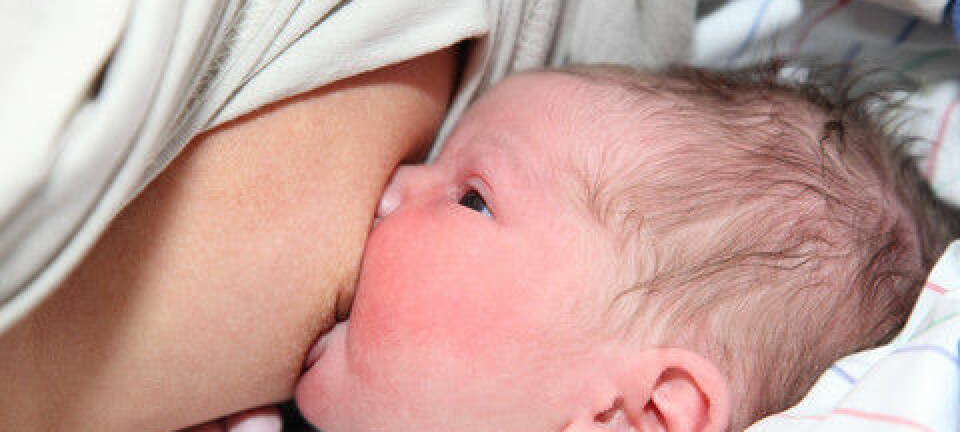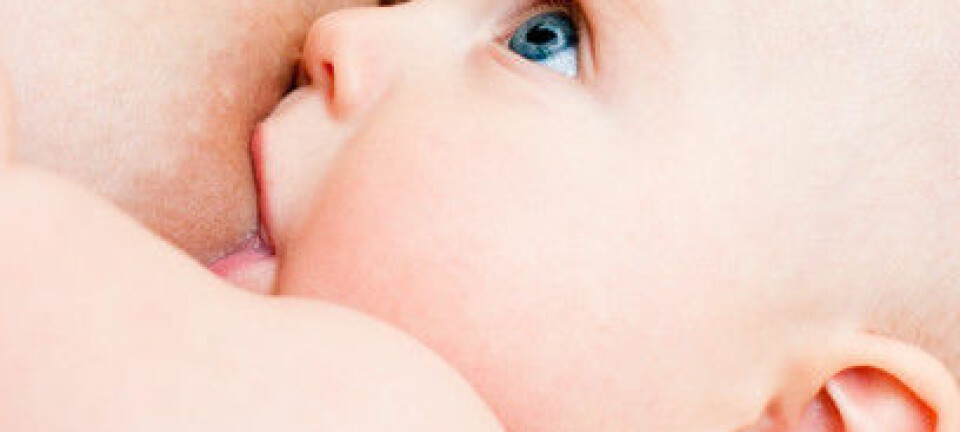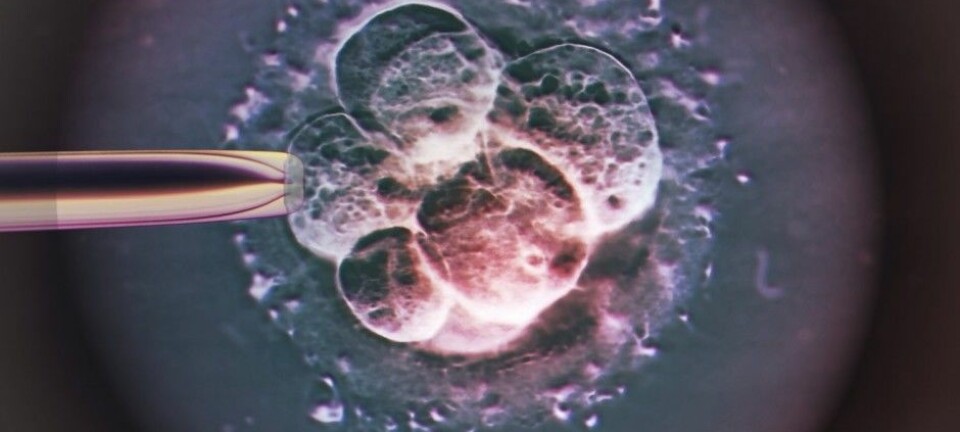
Breast milk sends genetic messages to the child
Genetic material in breast milk may have a stronger effect on child health and development than scientists previously thought, according to new research.
It is commonly reported that children who are fed breast milk during their first year are less likely to develop allergies and other illnesses. It may even boost their IQ.
But why is this?
Scientists now think the explanation may be found in some of the genetic components of human milk--the so-called extracellular vesicles.
In a new study they have identified many more types and sizes of vesicles than were previously known and may have numerous affects on children’s cells.
"It may help explain why breast milk seems to have a wider impact on both child health and development, and why infant formula doesn’t have the same effect--because it doesn’t contain these vesicles," says lead-author Kristine Blans, from the Institute of Molecular Biology and Genetics, Aarhus University, Denmark.
The new results are published as part of Blans’ PhD thesis.
Cow's milk may also affect humans
These extracellular vesicles are also found in cow's milk. They may too affect our bodies, but this requires further investigation says Blans.
Senior Scientist Malene Møller Jørgensen, from the Immunology clinic at Aalborg University Hospital, Denmark, describes the new research as “extremely exciting.”
"The analyses indicate that the vesicles carry genetic codes that may affect the child's cells in diverse ways," says Jorgensen, who has evaluated the thesis.
Blans is now in the process of preparing her PhD research for publication in scientific journals.
-----------------
Read the Danish version of this story on Videnskab.dk
Translated by: Catherine Jex










